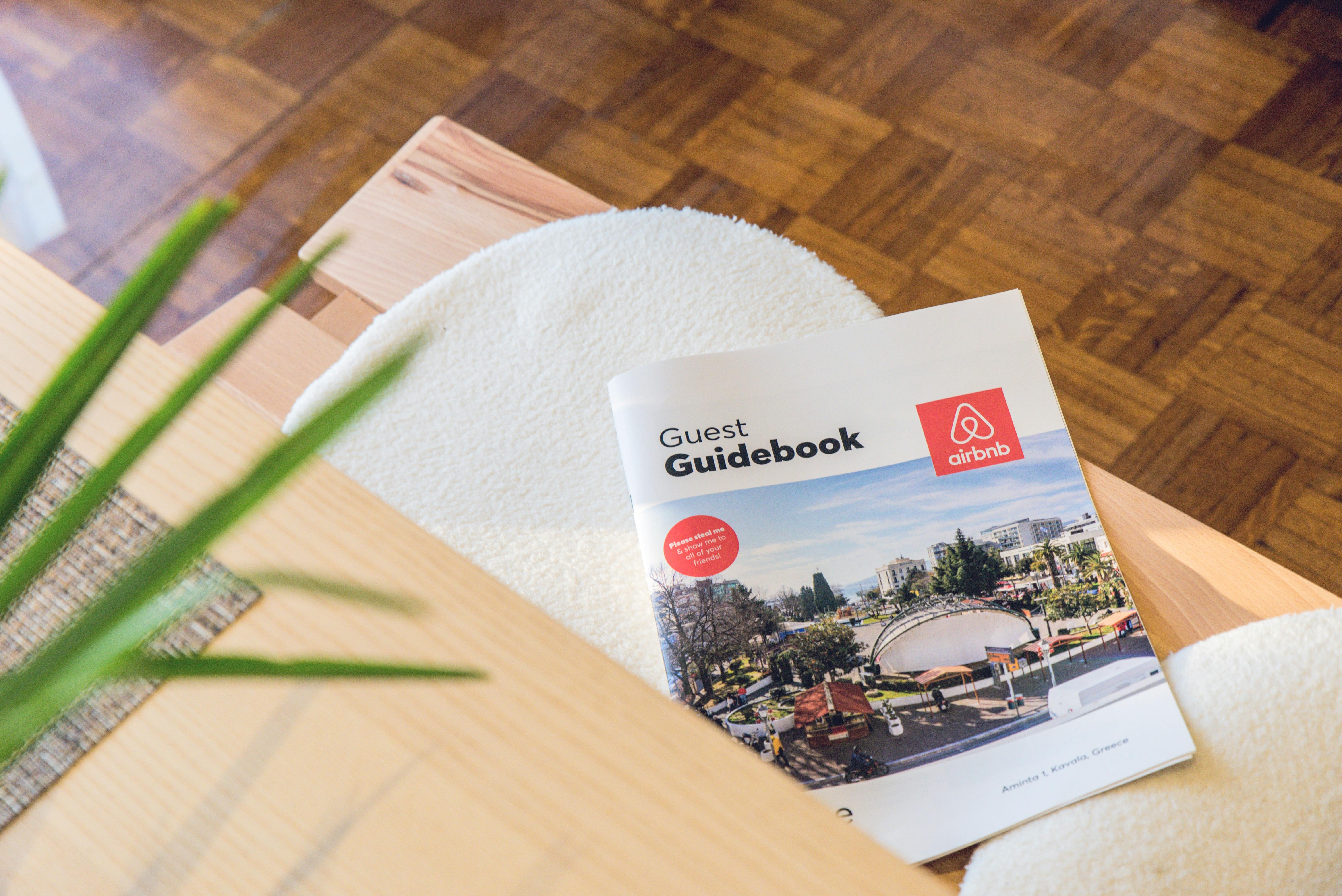In the world of digital marketing, negotiating paid guest post placements can be a game-changer for boosting your online presence and authority. But how do you ensure that your efforts yield maximum impact? This article will unveil the strategies you need to effectively negotiate these placements, whether you’re a seasoned marketer or just starting out. Guest blogging is not just about writing; it’s about leveraging relationships, understanding value, and ensuring that your content reaches the right audience.
When seeking to negotiate paid guest post placements, it’s essential to have a clear understanding of your goals. Are you aiming for backlinks, brand visibility, or audience engagement? Each goal demands a different approach. Start by researching potential sites that align with your brand values and target demographics. This way, your guest posts won’t just be another article lost in the vast ocean of the internet. Instead, they will drive genuine traffic and foster connections.
Moreover, mastering the art of negotiation can elevate your guest blogging game. You must be prepared to discuss pricing, content guidelines, and the promotion of your posts across social media platforms. What are the metrics that define success for the host blog? By addressing these questions upfront, you can craft a mutually beneficial agreement that enhances your visibility while providing value to the blog owner. So, are you ready to unlock the secrets of negotiating paid guest post placements for maximum impact? Let’s dive deeper into the strategies that will set you apart in this competitive landscape!
7 Proven Strategies to Secure High-Quality Paid Guest Posts That Skyrocket Your Brand Visibility

In the fast-paced world of digital marketing, securing high-quality paid guest posts can be a game-changer for your brand visibility. It’s not just about getting your name out there, its about creating meaningful connections that can elevate your online presence. In this article, we will explore 7 proven strategies that can help you land those coveted guest post placements and how to negotiate them effectively for maximum impact.
Understand Your Target Audience
Before you even think about reaching out for guest posts, it’s crucial you understand who your target audience is. Knowing what appeals to them can help you choose the right blogs or websites for your guest posts. Here are a few points to consider:
- Demographics: Age, gender, location, and interests.
- Pain Points: What problems does your audience face that your content can solve?
- Content Preferences: Do they prefer in-depth articles, listicles, or visual content?
By understanding your audience, you can tailor your pitches and content to resonate with them, making it easier to secure placements.
Research Relevant Blogs
Not all blogs are created equal. When looking for sites to pitch your guest posts, you should focus on those that align with your niche and have a solid domain authority. Tools like Moz or Ahrefs can help you check a site’s authority. Consider these factors:
- Engagement Rates: Look at comments and social shares.
- Content Quality: Assess the overall quality of their posts.
- Audience Fit: Ensure their readership matches your target audience.
Finding the right blogs can significantly increase the chances of your guest post being accepted and well-received.
Create Compelling Pitches
Once you identify the right blogs, the next step is crafting a compelling pitch. Your email should be concise but informative, and include:
- Personalization: Address the blog owner by name and reference their content to show you’ve done your homework.
- Value Proposition: Explain how your guest post will benefit their audience.
- Writing Samples: Include links to your previous work to showcase your writing style and expertise.
A well-crafted pitch can make all the difference in getting your guest post accepted.
Offer High-Quality Content
When you secure a guest post opportunity, delivering high-quality content is non-negotiable. This not only reflects well on you but also on the host blog. Here’s what to keep in mind:
- Originality: Ensure your content is unique and not published elsewhere.
- Relevance: Make sure it aligns with the topics covered on the host blog.
- SEO Optimization: Use relevant keywords and include internal and external links to improve SEO.
High-quality content not only gets shared but also brings value to readers, increasing the likelihood of future guest posting opportunities.
Build Relationships with Bloggers
Building relationships with bloggers can pay off in the long run. Engage with them by commenting on their posts, sharing their content on social media, or even sending them personalized emails. This helps you establish rapport, making it easier to negotiate future guest post placements. Consider these tips:
- Follow Up: After your guest post goes live, send a thank-you note.
- Engage on Social Media: Like and share their posts regularly.
- Provide Feedback: Offer constructive feedback on their content, which shows you value their work.
These gestures can foster a positive relationship with the blog owner and lead to more collaborative opportunities.
How to Negotiate Paid Guest Post Placements
Negotiating paid guest post placements can be tricky, but with the right approach, you can maximize your impact. Here are some tactics to consider:
- Know Your Worth: Understand the value you bring to the table. If you have a strong social media following or a specialized expertise, leverage that in your negotiations.
- Be Transparent: Clearly communicate your expectations regarding payment and deliverables.
- Offer Flexible Options: Consider different payment structures (flat fee, performance-based, etc.) to find common ground.
- Highlight Benefits: Emphasize how your guest post can drive traffic and engagement for their site.
Negotiation is an art, and the more transparent and flexible you are, the better the outcomes tends to be.
Track Your Success
Once your guest posts are live, it’s essential to track their performance. Use tools like Google Analytics to measure traffic, engagement, and conversion rates. Here are some metrics to keep an eye on:
- Referral Traffic: How much traffic is coming from your guest posts?
- Engagement Levels: Monitor comments, shares, and likes.
- Conversion Rates: Are readers taking action after reading your posts?
Tracking these metrics will help you understand which strategies work best, allowing you to refine your approach for future guest posts.
In the competitive landscape of digital marketing, securing high-quality paid guest posts is a strategic move that can bolster your brand visibility. By understanding your
The Ultimate Guide to Crafting Irresistible Pitch Emails for Paid Guest Post Opportunities

Crafting a great pitch email for paid guest post opportunities can feel like a daunting task, but it doesn’t have to be. Whether you’re a newbie or a seasoned pro, understanding how to negotiate for the best placements is crucial. Let’s dive into the ultimate guide to making your pitch emails irresistible and how to negotiate for maximum impact.
Understanding the Importance of Pitch Emails
Pitch emails are essential for connecting with website owners or editors who may accept guest posts. They serve as your first impression, so making it count is critical. A well-crafted pitch email can lead to long-lasting relationships and valuable backlinks. Here’s why they matter:
- Establish Authority: A strong pitch can position you as an expert in your field.
- Build Relationships: A good email can open doors to further collaborations.
- Boost SEO: Quality guest posts with relevant backlinks can significantly improve your site’s search engine rankings.
How to Craft Irresistible Pitch Emails
Creating a pitch email that stands out requires a mix of personalization, value proposition, and clarity. Here’s a breakdown of what to include:
Personalize Your Email: Always address the recipient by name. A generic greeting can turn off potential collaborators. For example, instead of “Dear Sir or Madam,” try “Hi Jane,”.
Subject Line Matters: An impactful subject line can make or break your email. Keep it concise and relevant. Examples include “Guest Post Idea: [Your Topic] for [Their Website]” or “Collaboration Opportunity: [Your Expertise]”.
Introductory Hook: Start with a hook that grabs attention. Mention a recent article from their blog that you enjoyed or a relevant industry trend. This shows you’ve done your homework.
Value Proposition: Clearly outline what you’re offering. What’s in it for them? Highlight how your content can provide value to their audience.
Brief Bio: Include a short bio about yourself and your expertise. This establishes credibility and shows why you’re the right person to write the post.
Call to Action: End your email with a clear call to action. Ask if they’re interested in discussing your ideas further, or request their guidelines for guest posting.
Example of a Pitch Email
Subject: Guest Post Opportunity: Boosting Engagement Through Storytelling
Hi [Editor’s Name],
I hope you’re doing well! I recently read your article on [specific topic] and was really impressed by your insights on [specific detail].
I’m [Your Name], a digital marketing consultant with over five years of experience in content strategy. I’d love to contribute a guest post to [Their Website] focusing on how storytelling can enhance audience engagement. Given your audience’s interest in effective marketing strategies, I believe this topic would resonate well.
Here’s a brief outline of the post:
- Introduction to storytelling in marketing
- Key elements of a compelling story
- Case studies of brands successfully using storytelling
- Conclusion with actionable tips
Would you be open to discussing this idea further? I’m also happy to adapt it to fit your audience’s needs.
Looking forward to your response!
Best,
[Your Name]
[Your Contact Information]
How to Negotiate Paid Guest Post Placements
Once your pitch is accepted, negotiation is the next step. Knowing how to negotiate effectively can maximize the impact of your guest posts. Here are some strategies:
Research Rates: Before negotiations, understand the going rates for guest posts in your niche. Websites like GuestPostTracker can provide valuable insights.
Highlight Mutual Benefits: Emphasize how your post will benefit their audience. A win-win scenario is always more appealing.
Be Flexible: If the price is higher than your budget, consider offering to write multiple posts or promoting their content on your social media channels.
Ask for Additional Links: If you’re paying for a guest post, don’t hesitate to ask for more than one link back to your site. This can enhance your SEO efforts.
Follow Up: If you don’t hear back after your initial negotiation, a polite follow-up can often rekindle the conversation.
Common Mistakes to Avoid
- Being Too Pushy: While you want to advocate for your worth, being overly aggressive can sour negotiations.
- Ignoring Guidelines: Always adhere to the website’s guest post guidelines to avoid rejection.
- Not Following Up: If you don’t hear back, it’s okay to send a gentle reminder. Just don’t overdo it.
Creating effective pitch emails and negotiating guest post placements is an art. With the right approach, you can secure valuable opportunities that boost your online presence and authority. Remember, every email you send is a chance to build relationships and broaden your reach in the digital marketing realm.
Maximize Your ROI: How to Negotiate Paid Guest Post Rates Without Compromising Quality

In the world of digital marketing, guest posting is a powerful strategy that can boost your brand’s visibility and authority. But if you want to really maximize your ROI, you need to learn how to negotiate paid guest post rates without compromising quality. This process is crucial, especially in a competitive market like New York, where everyone is fighting for space in the crowded online landscape. You want to ensure that every dollar spent yields significant returns.
Understanding the Value of Guest Posts
Before diving into negotiation tactics, let’s first understand why guest posting is so valuable. When you publish articles on reputable sites in your niche, you not only get backlinks which help with SEO, but also reach new audiences who might not know about your brand. This can lead to increased traffic, higher conversion rates, and ultimately, a better return on investment.
- SEO Benefits: Backlinks from high-authority sites improve your domain authority.
- Brand Awareness: Exposure to new audiences can lead to increased brand recognition.
- Networking Opportunities: Building relationships with other bloggers and site owners.
Researching Guest Post Rates
One of the first steps in negotiating paid guest post placements is to research the average rates in your industry. Rates can vary significantly depending on the site’s authority, traffic, and niche. Here’s a quick breakdown of what you might expect:
- Low Authority Sites: $50 – $150 per post
- Medium Authority Sites: $150 – $500 per post
- High Authority Sites: $500 and up per post
Keep in mind that these figures can change, so doing your homework is essential. Tools like Ahrefs and SEMrush can help you assess a site’s authority and traffic levels.
Building Your Value Proposition
When negotiating, you should have a strong value proposition. This means you need to clearly articulate what you bring to the table. Consider the following points:
- Quality Content: You should be able to produce high-quality, engaging content that resonates with the audience.
- Promotion Strategy: Outline how you plan to promote the post across your channels, increasing visibility.
- Established Track Record: If you’ve guest posted before, share metrics or case studies that demonstrate your effectiveness.
Negotiation Techniques for Maximum Impact
Now that you understand the value, it’s time to negotiate. Here are some techniques that can help you secure better rates without sacrificing quality:
Start High, But Reasonable: When you first propose a rate, start higher than what you’re willing to pay. This gives you room to negotiate down while still landing at a price that works for you.
Leverage Multiple Sites: If you’re targeting several sites, mention that you’re considering multiple placements. This creates a sense of competition, which can work in your favor.
Ask for Added Benefits: Don’t just settle for a guest post placement. Ask for additional benefits like social media promotion, inclusion in newsletters, or even a follow-up piece. This can enhance the value of your purchase.
Highlight Long-Term Relationships: Emphasize that you’re looking for a long-term partnership. Site owners may be more inclined to negotiate if they see potential for future collaborations.
Be Transparent About Budgets: Sometimes, simply being honest about your budget constraints can lead to flexibility. Many site owners appreciate transparency and may offer discounts.
Examples of Effective Negotiation Scenarios
Let’s consider a couple of examples:
Scenario 1: You’re negotiating with a site that usually charges $300 for a guest post. You start the conversation at $250 and share your promotion strategy, highlighting your social media following. The owner is impressed and agrees to $275, along with a share on their social channels.
Scenario 2: You reach out to a high-authority blog that charges $700 per post. You explain your past successes and offer $500, mentioning that you plan to promote the post extensively. The owner sees the potential for collaboration and agrees to $600 with an additional backlink.
Final Thoughts
Negotiating paid guest post placements can seem daunting, but with the right strategies, it can become a smooth process. Understanding the value of guest posting, doing your research, and employing effective negotiation tactics will not only help you secure better rates but also ensure you maximize your ROI. In the bustling digital landscape of New York, being savvy with your guest post placements can set you apart from the competition. Embrace the negotiation process, and watch as your brand’s visibility and authority grow through quality guest posts.
5 Key Metrics to Consider When Choosing Paid Guest Post Platforms for Optimal Results

In the ever-evolving world of digital marketing, guest posting remains a potent strategy for improving SEO and driving traffic. However, not all guest post platforms are created equal. Selecting the right one can be the difference between a successful campaign and a wasted investment. Here’s a guide on the key metrics to consider when choosing paid guest post platforms, and some useful tips on how to negotiate paid guest post placements for maximum impact.
5 Key Metrics to Consider When Choosing Paid Guest Post Platforms for Optimal Results
When you are evaluating potential platforms for guest posting, several metrics can help you determine their effectiveness. Here’s a breakdown of five crucial factors to consider:
Domain Authority (DA)
- DA is a score that predicts how well a website will rank on search engines. Higher DA generally means better visibility.
- A DA score of 40 or above is often considered good. But, it’s also important to look at the niche relevance.
Traffic Volume
- The amount of traffic a website gets is a key indicator of its reach and engagement.
- Look for platforms that provide monthly traffic statistics. More traffic usually means greater exposure for your content.
Audience Engagement
- Metrics like comments, social shares, and time spent on site can show how engaged the audience is.
- An engaged audience is more likely to interact with your content, leading to better results.
Niche Relevance
- Ensure the platform aligns with your industry. A post on a completely unrelated site may not resonate with readers and could hurt your brand image.
- Check the content style and topics covered to see if they match your target audience.
Link Quality
- Not all backlinks are created equal. It’s essential to assess the quality of the links you’ll receive.
- Look for dofollow links, as these pass link juice and help improve your site’s SEO.
How to Negotiate Paid Guest Post Placements for Maximum Impact
Once you’ve identified the right platforms, you need to approach negotiations effectively. This is where the art of persuasion meets strategy. Here are some tactics to keep in mind:
Do Your Research
- Before you reach out, have a clear understanding of the platform’s audience, typical rates, and their content style. This gives you leverage.
Build a Relationship
- Always try to establish a rapport with the site owner or editor. A friendly email can go a long way. You could mention a recent article of theirs you enjoyed or how your content can complement their existing themes.
Be Clear About Your Value
- When proposing a guest post, clearly articulate what value you bring to their audience. Whether it be unique insights, data, or practical tips, make sure they see how your content will benefit their readers.
Negotiate the Terms
- Don’t just accept the first offer. Discuss the possibility of a lower rate, or additional perks like a social media shoutout or backlinks to more than one of your pages. It’s all about creating a win-win situation.
Consider Long-Term Partnerships
- Instead of one-off posts, pitch the idea of a series of articles or regular contributions. This can often lead to better rates and more consistent visibility.
Practical Examples and Insights
Let’s look at a few scenarios to clarify these points:
Scenario 1: High Domain Authority but Low Engagement
- You find a platform with a DA of 50 but minimal social shares. In this case, it might not be worth it to invest in a guest post as the audience isn’t engaging.
Scenario 2: Niche-Specific but High Cost
- A site closely aligned with your niche may charge a premium. However, if their traffic volume and engagement metrics are solid, it could be worth the expense.
Scenario 3: Building a Relationship
- You reach out to an editor and compliment them on their recent work. They appreciate the feedback and are more open to discussing guest posts at a lower fee.
By focusing on these metrics and negotiation strategies, you can maximize the impact of your paid guest post placements. The goal is to find platforms that not only enhance your SEO but also align with your brand message and audience interests.
Remember, it’s not just about getting published; it’s about getting published where it counts. Through careful selection and effective negotiation, you can create opportunities that are not just good, but great.
What Every Blogger Should Know About the Legalities of Paid Guest Posting: Tips for Safe Negotiation

In the world of blogging, guest posts can be a game changer for increasing visibility and credibility. But, if you’re a blogger considering paid guest posting, there’s a lot you need to be aware of, especially when it comes to the legalities surrounding it. Understanding these legal considerations is crucial to avoid pitfalls that could harm your blog or brand. Let’s dive into what every blogger should know about the legalities of paid guest posting, including tips for negotiating effectively.
Understanding Paid Guest Posting
Paid guest posting is when a blogger pays another website to publish their content. This practice can be beneficial for both parties; the guest blogger gets exposure and backlinks, while the host site earns revenue. However, it’s important to know that not all sites allow paid posts, and many have strict guidelines.
Here are some key legal points bloggers should consider:
Disclosure Requirements: Under the Federal Trade Commission (FTC) regulations, you must disclose when a post is sponsored. This means clearly indicating that the content is paid, typically at the beginning of the article.
Copyright Issues: When you write a guest post, you usually retain some rights to your content, but the host site may require certain usage rights. Be sure to clarify who owns the content and how it can be used.
Plagiarism Risks: If you’re not careful, you could unintentionally plagiarize. Always ensure your content is original and properly cite any sources or references.
Tips for Safe Negotiation
Negotiating a paid guest post placement can feel daunting, but it doesn’t have to be. Here are some practical tips to keep in mind:
Do Your Research: Understand the site’s audience, domain authority, and the type of content they publish. This will help you tailor your pitch effectively.
Be Clear About Your Goals: Know what you want to achieve with your guest post. Is it traffic, backlinks, or brand awareness? Communicate these goals during negotiations.
Negotiate the Terms: Discuss the payment, publication date, and any revisions. Ensure both parties are on the same page to avoid misunderstandings.
Get Everything in Writing: Verbal agreements can lead to confusion later. Draft a simple contract that outlines the terms of the agreement.
Be Professional: Always approach negotiations with a professional attitude. Respect goes a long way in establishing a good relationship with the host site.
How to Negotiate Paid Guest Post Placements for Maximum Impact
Once you’ve established a good relationship with a host site, it’s time to negotiate for maximum impact. Here’s how to do it effectively:
Offer Unique Value: Make it clear what unique insights or value you bring to the table. This could be your expertise, a fresh perspective, or exclusive data.
Propose a Series: Instead of just one guest post, propose a series of posts. This can be more appealing to the host site, as it keeps readers engaged over a longer period.
Highlight Your Audience Size: If you have a large following or engagement on your social platforms, let the host know. This can justify higher fees and help in negotiations.
Be Flexible: Sometimes, the host may have specific topics in mind or certain requirements. Be willing to adapt your pitch to meet their needs while still aligning with your goals.
Common Mistakes to Avoid
When negotiating paid guest post placements, there are several common pitfalls to avoid:
Ignoring Guidelines: Many sites have specific guidelines for guest posts. Ignoring these can lead to rejection or even damage your reputation.
Underestimating the Importance of SEO: Ensure your content is optimized for search engines. This not only helps your post perform better but also appeals to the host site’s interests.
Not Following Up: After your initial pitch, don’t be afraid to follow up. Sometimes emails get lost, or the host site might need a gentle reminder.
Overlooking Content Quality: Just because you’re paying doesn’t mean the content should be subpar. Always strive for high-quality, engaging content.
Final Tips
As a blogger, understanding the legalities and best practices of paid guest posting is crucial for both your reputation and success. Always keep the lines of communication open, respect the host site’s rules, and don’t shy away from negotiating for better terms. By doing so, you can ensure that your guest posts are not only legally compliant but also impactful in reaching your target audience. Remember, blogging is a journey, and each guest post is a stepping stone towards building a stronger digital presence.
Conclusion
In conclusion, successfully negotiating paid guest post placements involves a strategic blend of research, relationship building, and clear communication. Start by identifying high-quality websites that align with your niche and audience, and thoroughly analyze their content, engagement metrics, and guest post guidelines. Building a rapport with site owners can greatly enhance your chances of securing favorable terms, so don’t hesitate to engage genuinely with their content. When it comes to negotiation, be transparent about your expectations and the value you bring, whether it’s unique content, backlinks, or increased traffic. Always be prepared to discuss pricing, and consider offering a trial post to demonstrate your value. Ultimately, the key to successful guest posting lies in fostering long-term partnerships. Take these insights and start reaching out to potential sites today—your next valuable guest post opportunity is just a conversation away!








